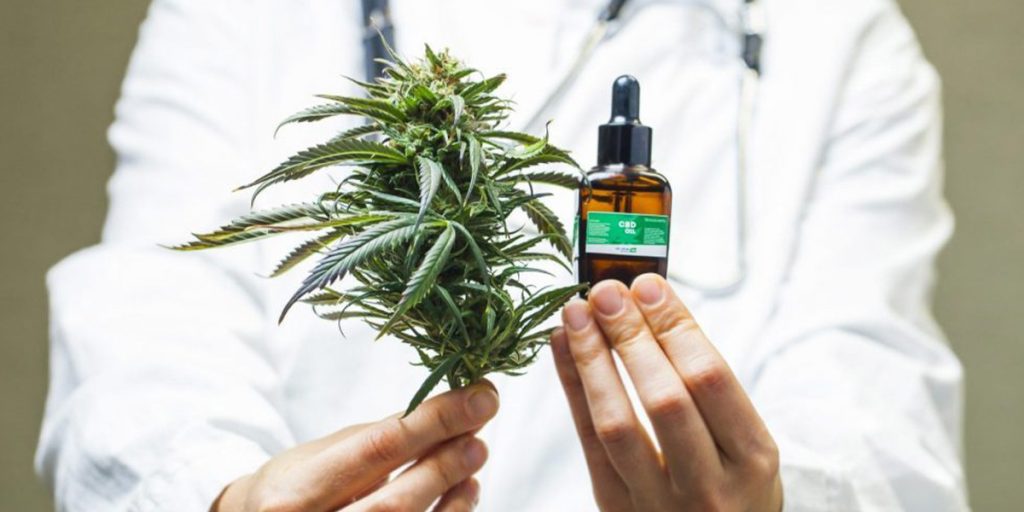
There are over 120 different phytocannabinoids present in cannabis, all of which have the ability to interact with both each other and our endocannabinoid system. Among the well-researched and popular phytocannabinoids are the non-psychoactive cannabidiol (CBD) and delta-9-tetrahydrocannabinol (THC).
Some research suggests that taking non-psychoactive CBD and THC together can be more effective than using either compound alone. This means that if you’re using a high THC cannabis flower strain, you may find it beneficial to add CBD oil to your medical cannabis plan.
There are several reasons why combining CBD and THC can be advantageous to medical cannabis patients, which we will explore.
Enhanced Therapeutic Effects
CBD and THC interact with different receptors in the endocannabinoid system and have distinct mechanisms of action: CB1 receptors are mostly found in the brain and the central nervous system and CB2 receptors are located throughout the immune system. When used together, CBD and THC can produce an entourage effect, where the combination enhances the overall therapeutic benefits. This synergistic effect may provide better relief from symptoms such as pain, inflammation, anxiety and nausea compared to using either compound alone.
Balanced Psychoactive Effects
THC is responsible for the psychoactive effects associated with cannabis, while CBD is non-intoxicating and can counteract some of the potential adverse effects of THC, such as anxiety or paranoia. By combining CBD with THC, patients can potentially achieve a more balanced experience, where the therapeutic effects of THC are maintained while minimising unwanted psychoactive effects.
Potentiated Pain Relief
THC has analgesic properties and can help alleviate pain. CBD interacts with pain receptors and can enhance the pain-relieving effects of THC. Combining CBD and THC may result in a more robust and effective pain management solution for medical cannabis patients, especially for conditions involving chronic or neuropathic pain.
Anti-Inflammatory Effects
Both CBD and THC possess anti-inflammatory properties, but they act through different pathways. When used together, they can provide a more comprehensive anti-inflammatory response, potentially benefiting patients with conditions like arthritis, inflammatory bowel disease, or multiple sclerosis.
Antiemetic Effects
THC has been widely recognized for its ability to reduce nausea and vomiting, particularly in patients undergoing chemotherapy. CBD can also contribute to antiemetic effects and can work synergistically with THC to provide better relief for individuals experiencing treatment-induced nausea or other gastrointestinal disturbances.
Mental Health Support
CBD has shown promise in reducing anxiety and improving mood disorders such as depression. Combining CBD with THC may offer a more holistic approach to managing mental health symptoms, as THC can provide relaxation and mood elevation, while CBD may counteract any potential anxiety or paranoia that some individuals may experience with THC alone.
It’s important to note that the ideal CBD-to-THC ratio and dosing will vary depending on individual needs, specific medical conditions, and personal tolerance levels. Observing your body’s reaction to different CBD:THC ratios is the best way to find what works for you-As always with cannabis, start with small doses and work your way up until you find the sweet spot. Always choose products that clearly state the quantity and ratio of CBD and THC per dose and have been lab-tested for safety, potency and quality.
If you want to learn more about introducing CBD oil to your medical cannabis plan, our team of highly skilled doctors and nurses are here to answer your questions. Book a consultation today.
Disclaimer: Medicinal cannabis and CBD oil are unapproved medicines in NZ which means that there is no conclusive evidence for their effect, apart from Sativex. Many doctors do not routinely prescribe cannabis medicines. The above article was written for general educational purposes and does not intend to suggest that medicinal cannabis can be used to treat any health condition. Please consult with your healthcare provider.